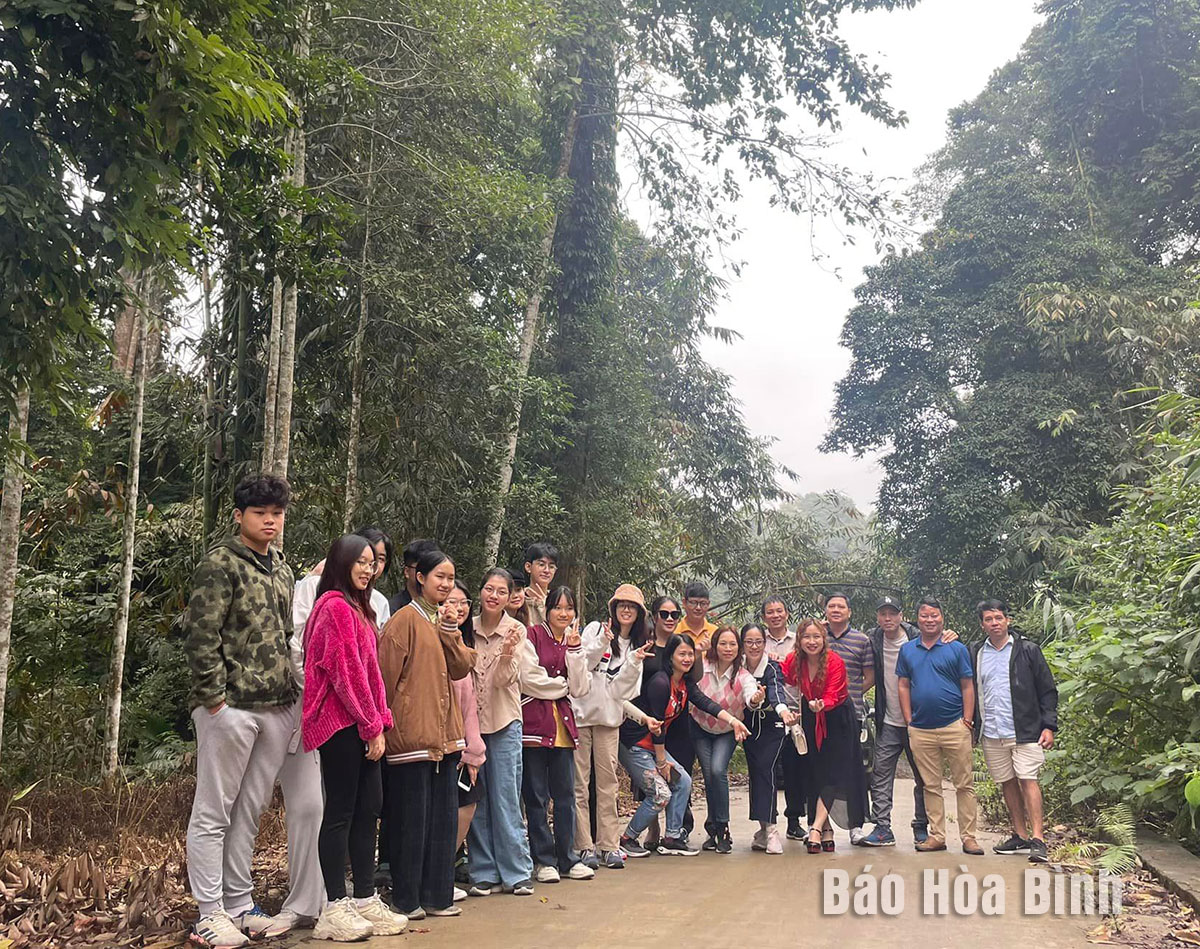



Tourists taking a stroll in a forest in Hien Luong commune, Da Bac district.
In recent years, as many people have become better off, more and more have switched from celebrating Tet to enjoying Tet, and the demand for traveling during the longest festival in a year of Vietnamese people is growing. The Northwest region in general and Hoa Binh province in particular are always ideal destinations for tourists.
To best meet their needs, local homestays had received booking from before Tet and made all necessary preparations to welcome visitors on the first days of the new year.
Bui Van Thu, owner of Thu Bi homestay, Chien hamlet, Van Son commune, Tan Lac district, shared: "In order to meet the needs of tourists, we are ready to receive visitors to stay overnight during Tet. My family has a community house that can accommodate about 30 people. In addition to discovering the cultural identity of Tan Lac mountainous district during Tet, tourists can also visit Nam Son cave, Thung waterfall and attend the Khai Ha festival”.
Long, owner of a homestay in Hien Luong commune (Da Bac), said: "Lunar New Year is an opportunity for tourists to come to Hoa Binh, we accept visitors booking rooms throughout Tet. To meet their demand, it is necessary to do a good job of preparing facilities and food and creating entertainment activities for them”.
Nguyen Thanh Binh, a tourist from Hanoi, said: "Tet is a long holiday, so I want to go out with my family, explore and experience new lands and cultural beauty in different regions during Tet. Hoa Binh is an ideal choice because of its unique cultural features, along with typical dishes, friendly and hospitable people, and still retaining many traditional lifestyles of ethnic groups. When we come here, we can immerse ourselves in nature, enjoy the immense beauty of mountains and forests that are rarely found in the city.
In recent years, community-based tourism has been a direction of local economic development, exploiting existing potential and strengths to develop services, create jobs, and raise people's income, thus contributing to poverty reduction in remote and ethnic-inhabited areas.